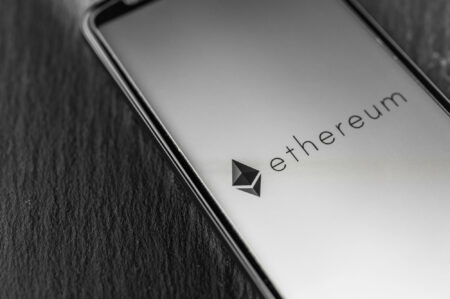What happened this week around blockchain and cryptocurrencies? The most relevant local and international events as well as appealing background reports in a pointed and compact weekly review.
Selected articles of the week:
In August, Luzerner Kantonalbank (LUKB) caused a stir when it presented its own crypto offering for early 2024. Switzerland’s first state-owned bank positioned itself in the sector. Only a short time later, Zuger Kantonalbank overtook its colleagues in Lucerne by immediately introducing trading and custody services for selected cryptocurrencies. Over the past one and a half months since its launch, the service has attracted a great deal of interest from customers. In an interview with CVJ.CH, Jan Damrau, member of the Zuger Kantonalbank’s Executive Board and Head of Corporate Management, explains the bank’s upcoming plans.
Jan Damrau talks to CVJ.CH about ZugerKB’s decision to be the first Cantonal Bank to introduce a crypto offering.
The common acronym DeFi stands for “Decentralized Finance” and is a financial ecosystem based on blockchain technology that offers traditional financial services such as lending, borrowing and trading without the need for intermediaries such as banks and brokers. Instead, the DeFi space uses automated programs (smart contracts) and decentralized applications (dApps). What is the current state of the art and where are the most difficult challenges? The second part in an in-depth series on the DeFi sector.
Decentralized finance (DeFi) applications are still looking to merge with the traditional financial sector.
Pudgy Penguins is a collection of 8,888 cute penguins that live as non-fungible tokens (NFTs) on the Ethereum blockchain. The project was launched in July 2021 and sold out in just 20 minutes. However, the founding team was unable to keep its promises. After a disappointing year, the project changed course under new leadership. This turned out to be a turning point for the collection. Since the takeover by Luca Netz, Pudgy Penguins has established itself as one of the leading Web3 brands that has been allowed to place physical toys with retail giants such as Walmart.
Pudgy Penguins is a PFP NFT collection of 8,888 adorable penguins living on the Ethereum blockchain, now available as toys across the world.
In both Germany and Switzerland, various crypto announcements by established financial players have been made in recent months. Two weeks ago, for example, Commerzbank became the first universal bank in Germany to receive a custody license from the financial market supervisory authority. However, the larger competitors Deutsche Bank and DZ Bank have also already submitted applications to BaFin. Following approval, both would like to launch around the beginning of 2024. Similarly, DLT Finance, an already licensed German crypto trading and brokerage company, is expanding its offering in cooperation with the SIX digital exchange.
DLT Finance announced a collaboration with the crypto arm SIX Digital Exchange (SDX) of Swiss exchange to expand its institutional crypto services.
Since March 2022, the city of Lugano has been competing with Zug as Switzerland’s leading blockchain hub under “Plan B”. Part of the initiative, which was co-developed by the world’s largest stablecoin provider Tether, was the development of a payment app. MyLugano was intended to bring the local population closer to the local cryptocurrency LVGA (“Luga”) through a loyalty circuit. In addition to Bitcoin (BTC), Tether (USDT) and LVGA, the app now also supports the polygon-native token MATIC. Lugano celebrated the launch with the creation of an NFT on the Polygon blockchain.
The city of Lugano’s payment app “MyLugano” welcomes Polygon, another blockchain network that extends its functionality to NFTs.









